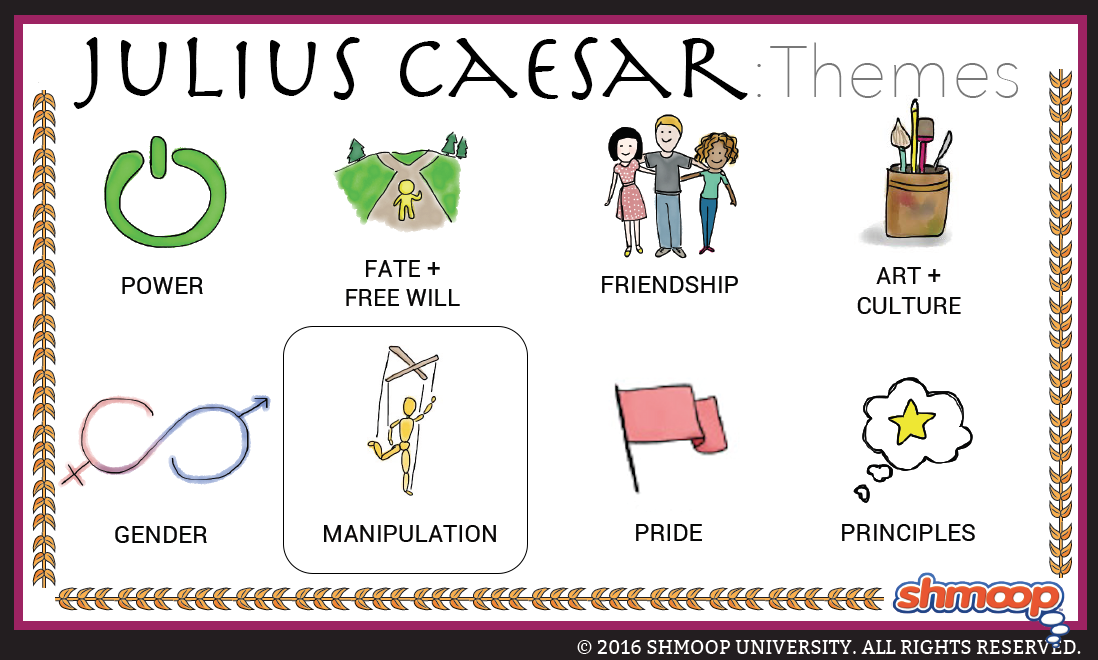 (Click the themes infographic to download.)
(Click the themes infographic to download.)
In Julius Caesar, manipulation is almost a professional sport. Politicians use their rhetorical skills to gain power and to influence large, fickle crowds, and seeming friends lie outright to each other. It's not all that different from middle school popularity contests, just in a more, uh, ancient setting. Persuasion and suggestion are rhetorical skills that play central roles in Julius Caesar, but they also highlight the willingness of individuals in hard times to hear what they want to hear (remind you at all of our own day and age?). It's often unclear whether characters are manipulated by others, or do they simply find in the speech of others an inspiration to do what they might otherwise have been too afraid to do.
Questions About Manipulation
- Is Cassius responsible for manipulating Brutus to join the conspiracy? Why or why not?
- When Casca first tells us about the mob coming to watch Caesar at the festival of Lupercal, he characterizes it as a group of idiots that would cheer if Caesar had stabbed their mothers. What is it about Caesar that makes the crowds treat him like such a rock star?
- How do the conspirators lure Caesar to the Capitol in Act 2, Scene 2?
- Is it only the weak and stupid who can be persuaded, or do seemingly rational characters also get duped?
Chew on This
Brutus was not persuaded to join the plot by anything Cassius had to say. The idea was already stirring in his brain and he joined based on his own reasoning.
Although Julius Caesar is a master manipulator and exercises impressive crowd control, he's not immune to being manipulated by his so-called friends and political allies.